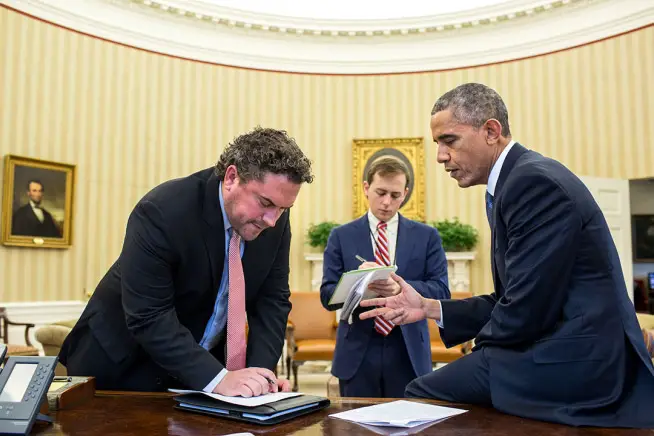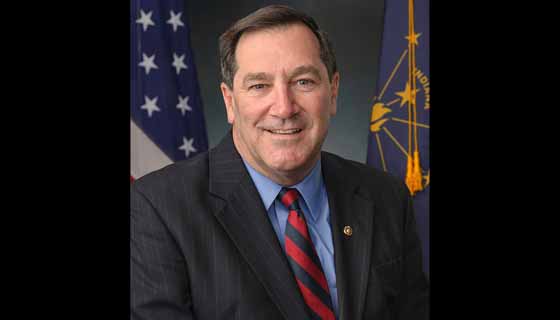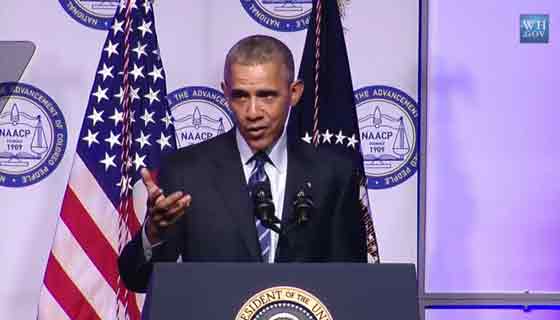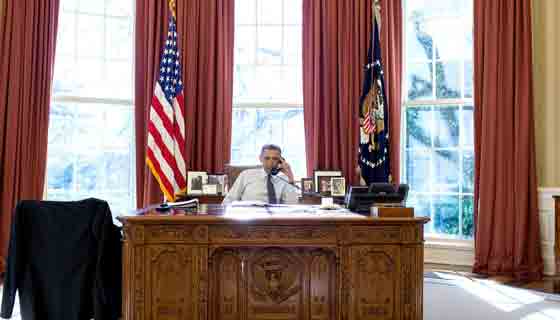President Barack Obama announced Thursday a plan to reform an immigration system that he says “is broken and everybody knows it.”
The president’s plan calls for cracking down on illegal border crossings, prioritizing the deportation of felons rather than families, and expanding the Deferred Action for Childhood Arrivals program known as DACA.
“There are actions I have the legal authority to take as president, the same kind presidents have done before me,” the president said in his speech.
The plan would extend legal protection to the parents of US citizens and legal permanent residents who have been in the country for more than five years and do not have a criminal record.
“Individuals will have the opportunity to request temporary relief from deportation and work authorization for three years at a time if they come forward and register, submit biometric data, pass background checks, pay fees, and show that their child was born before the date of this announcement,” the White House said in a fact sheet.
“By providing individuals with an opportunity to come out of the shadows and work legally, we will also help crack down on companies who hired undocumented workers, which undermines the wages of all workers, and ensure that individuals are playing by the rules and paying their fair share of taxes.”
The policy will also expand the existing DACA program to cover more DREAMers, who are undocumented immigrants brought to the US as children. The old guidelines only provided relief to undocumented immigrants if they came as children, resided in the US for at least five years, met specific education requirements, entered the US before June 15, 2007 and were born after 1981.
The new guidelines will apply to undocumented children who entered before January 1, 2010. It removes the age cap that was originally put in place for DACA recipients. For instance, someone who is 45 years old but came to the US as a child would not qualify for DACA. DACA renewals will be required every three years.
DACA applicants must go through a rigorous and expensive background check and submit biometric data. The program is self-funding based on the fees collected from applications. The practical effect is that Republicans in Congress cannot use their budgetary authority to de-fund either program.
Neither of the policies extend legal permanent status nor a pathway to citizenship to undocumented immigrants. Such an act would likely require Congressional approval. The executive actions simply defer deportation under the principle of prosecutorial discretion using strict guidelines. They also allow undocumented immigrants to apply for a work permit to work legally while paying taxes.
All told, the president’s plan is estimated to potentially provide relief to over 4 million undocumented immigrants. When the previous DACA policy is included, the potential number of undocumented that could be affected is closer to 5.5 million. Another roughly 6 million undocumented immigrants will not benefit from any of the president’s announced policies.
The president made the point that deportations will continue for undocumented immigrants who commit serious crimes. The nation’s border control and immigration agents will focus their attention on violent criminals, gang members and drug dealers instead of law-abiding undocumented immigrants.
The administration is using its prosecutorial discretion to deport “felons, not families. Criminals, not children. Gang members, not a mom who is trying to provide for her kids,” the president said.
“We’ll prioritize just as law enforcement does every day,” the president argued, adding that “tracking down and rounding up millions of people is not realistic.”
The White House noted that every president since Eisenhower has issued executive orders on immigration. The administration’s policy is ironically based on a legal precedent set by Ronald Reagan. President Reagan used executive action to defer deportation of children in the 1980s and President George H. W. Bush extended deferred action to 1.3 million in 1990. President George W. Bush used his executive authority to expedite green cards to those enlisted in the military in 2002.
President Obama has blamed Congress for inaction on the issue, saying that he would prefer a legislative fix but that he was forced to act.
The Senate’s bill — which overwhelmingly passed with a bipartisan 68 to 32 majority — has been blocked from a vote in the Republican-controlled House for the past year and a half.
Speaker of the House John Boehner said in June that the House would not vote on an immigration bill this year.
Congressional Republicans are even more opposed to executive acts on immigration, arguing that the president is abusing his authority.
Senator Ted Cruz of Texas wrote in Politico that the president’s “executive amnesty for immigrants here illegally unilaterally decreed from the White House would seriously undermine the rule of law.”
Cruz compared the president to a monarch.
Mitch McConnell, the incoming Senate Majority Leader, has said that the president’s actions would be “like waving a red flag in front of a bull” and that it would “poison the well” in the new Congress, dooming any chance of immigration reform.
McConnell voted against the Senate’s bipartisan bill last year.
The president has one simple message for his Republican critics.
“Pass a bill.”
————











